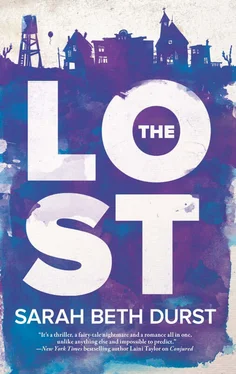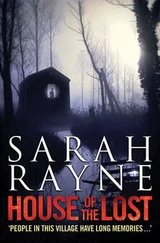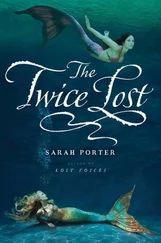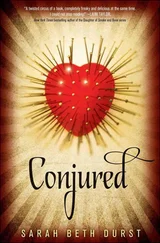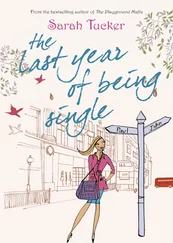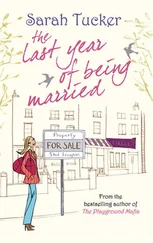I wish there were more locks.
I wait in the hallway for my eyes to adjust. After a minute, I can see the shadows of furniture, a hint of the staircase, the dark holes that are the doorways. Feeling along the wall, I follow the sounds of Peter’s and Claire’s voices to the dining room, and I wonder if I should do something about a busload of kids who might or might not be here somewhere. I picture them scared and shivering in the cool desert night. I picture them shuffling off the bus as zombies. And I decide that since I can’t do anything about them and since I have zero evidence that this place has zombies, I refuse to worry about it.
The dining room is bathed in blue shadows. Over the table, the chandelier is a tangle of glass that catches the stray bits of pale blue moonlight. Peter dumps the lunch boxes on the dining room table—there are at least half a dozen. He and Claire rifle through them.
“Where did all this come from?” I ask.
“Told you,” Claire says, chewing. “School bus.”
“I mean, all the lost things. This place.” You. Me.
“From the void,” Peter answers, as if this were obvious.
“But what is the void? Do you mean the dust storm on the highway? It’s not just a storm, is it? Where did it come from? Is it always there? Why have I never heard of it, of Lost, of Finders and Missing Men? None of this should exist.” And I shouldn’t be here.
“Eat,” Peter says, not unkindly.
“But...”
“I don’t know,” Claire says. “But the void is real. I think.”
“It’s a servant of despair,” Peter says, “and it will destroy you if it can.”
“And you?” I ask. “What are you?”
“A servant of hope.” He bows but there’s no mocking in his voice or his eyes. In fact, he looks sad, an ancient kind of sad, as if he carries the weight of a century’s sorrow.
I don’t know what to say to that insanity. So I turn to Claire. Scooting past me, Claire selects a Disney princess lunch box and scurries to one corner. She tucks herself into the shadows, and I hear the snaps open on the box. I don’t know how she can see what she’s eating, or why she doesn’t sit at the table or closer to the window.
Maybe she’s used to hiding as she eats.
I try to imagine what her life has been like here, surrounded by madness, and I can’t. Near as I can tell, she’s been on her own, scavenging for herself, taking care of herself, with only Peter as an older brother figure. I don’t know what she’s had to do or how difficult it has been.
Crossing to the table to join them, I bump into one of the chairs. I push it aside. It’s coated in dust, and I wipe my palms on my pants before I pick up a Spider-Man box, open it, and feel around inside. One squishy sandwich. One limp banana. A plastic bag full of soft orbs, either old grapes or eyeballs. I shut the box.
Less hungry, I open a second box and feel a sealed package. Aha! Crackers? Maybe a package of crackers and cheese, or fake cheese since I doubt that orange goop has ever encountered a cow even in a former life. I tear open the package and test a cracker, nibbling at its edge. It’s actually a pretzel chip with a tiny cup of hummus, also sealed air-tight. Sliding into one of the dining room chairs, I eat a dinner that would probably appall my mother, even though it’s healthier than some of the dinners I ate in college. Mom is the sort of person known to slip pureed squash into brownie mixture. She’s been worse since...lately. Thinking about her makes the cracker taste like cardboard in my mouth. Peter continues to sort through the boxes. He tosses items over his shoulder. They splat on the floor.
“Somebody could slip on those, or trip,” I point out.
“How dreary—to be—Somebody!” Peter tosses an apple. It hits with a wet thump. I don’t hear it roll—too rotten, I guess. I can’t see it on the floor. I am going to step on it later, think it’s a dead mouse, and scream my head off.
“How public—like a frog,” I complete the line. “Yes, you read Emily Dickinson’s poems in school. Very impressive. Just for the record, cryptically quoting random famous people without attribution doesn’t make you deep, or change the fact that you’re making a mess.” From the corner, Claire asks, “You went to school?”
I wonder if she’s right to sound amazed. For all I know, Peter could have spent his entire life wandering into, out of, and through this town... Another thought occurs to me. “Aren’t you in school?” I ask Claire. “Is there a school here?”
“I loved school,” Claire says. There’s the same longing in her voice as when she’d talked about cupcakes. “Especially story time. Do you tell stories?”
She looks eager, as if she’d devour me if I say yes. “I don’t really know any stories.” I turn to Peter, away from her hungry eyes. I can’t see his eyes in the dark. His back is to the window. I wish he’d turn. “She should be in school.” She should be home with parents taking care of her, not here scavenging like an abandoned pet, but I can’t say that in front of her.
“I could find a school,” Peter says, as if it were like finding stray lunch boxes.
“You could send her where there are schools. Beyond Lost. Home.”
“Only the Missing Man can—”
“Yes, you said that. But you could find the Missing Man. You’re the Finder, aren’t you? So, why not find him?” I am trying to keep my voice steady and rational. I am not succeeding well. I don’t think he understands that I want to go home now, not next week, not next month.
“A Finder isn’t a bloodhound. I can only find those who are lost in the void—at least until they fade. But the Missing Man is absent, not lost. I see the kernel of hope inside the lost like a light in the darkness. Speaking of light...” He flips on the dining room light. It bathes the table in brightness, and my eyes tear.
I leap toward the switch. “No!” His hand is still on the switch. I force it down, his hand and the switch, extinguishing the light in the chandelier. The room plunges into darkness that seems deeper and fuller after the brief exposure to light. I see blotches of light, afterimages, overlaid on the shadow that is Peter. His hand turns under mine as if to catch my fingers. I draw my hand away. He talks like such a mystical creature that I’d forgotten he’s real and solid. But his hand felt warm. “It’s not safe,” I say. “The mob...they’ll see.”
I can’t read his expression. I can’t even see his face. I see him as a shadow in front of the dining room window, the moonlit desert and the hills of trash outside. He’s silent for a moment, and I have no idea if he’s angry or amused or confused or doesn’t care at all. “You don’t need to worry. I’ll protect you.” He says it with such casual certainty, as if protecting me from a crazed mob is no more complex or heroic than unclogging a toilet, and I feel...safe. It’s such a staggering feeling that for an instant, I can’t breathe. I hear the crinkle of plastic—he’s unwrapping food. He talks as he chews. “I can’t wait to see his expression when he comes back and discovers you’re here thriving! Never had a chance like this before.”
My mouth feels dry as the illusory feeling of safety shatters. I force myself to swallow and say in an even voice, “I don’t want to be used for your personal vendetta. I have to leave as soon as possible. My mother needs me.”
“Aw, vendettas are fun. Come on, everyone loves a good vendetta.”
“She’s... I have to leave.” I try to sound firm.
Peter heaves a sigh, stuffs another cracker into his mouth, chomps, and then swallows. “This is exactly why I don’t fraternize with the lost. All the whining.” He levels a finger at Claire. “You promised she’s different.” My eyes have adjusted again, and I can see his silhouette, the curves of his face and the shape of his shoulders. In his trench coat, he’s an imposing figure, exactly the type you wouldn’t want to meet in a dark alley. Or dark dining room. I don’t know why I want so badly to trust him, except that I want to trust someone and my choices are severely limited. He scoops another lunch box off the table and tucks it under his arm. “You’re all the same. I can’t imagine what the Missing Man saw in you.”
Читать дальше
Конец ознакомительного отрывка
Купить книгу
